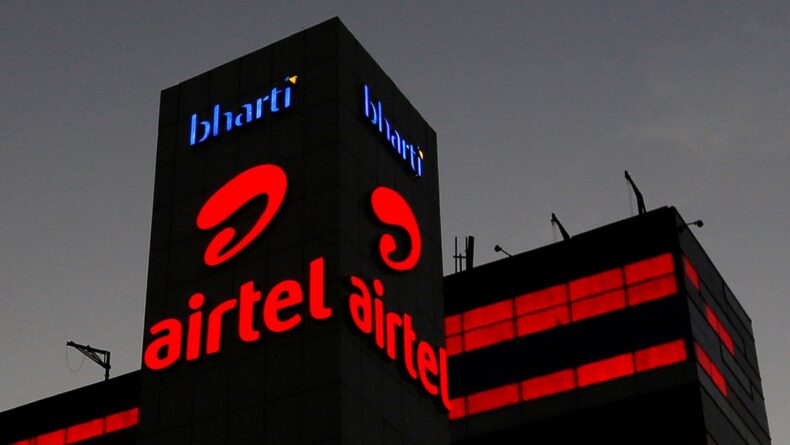Airtel NSE 0.92 % has signed 5G network agreements with Sweden’s Ericsson, Finland’s Nokia, and South Korea’s Samsung to commence deployment of 5G networks from August 2022.
Managing director and chairman Gopal Vittal said Airtel would commence the rollout of 5G services in August.
Airtel was the second highest bidder in the auctions, while its close rival Reliance Jio acquired the top bid with 24,740 MHz spectrum worth Rs 88,078 crore.
Airtel paid Rs 43,084 crore for 19,867.8 MHz spectrum in the 900 MHz, 1800 MHz, 2100 MHz, 3300 MHz, and 26 GHz frequency bands. This represents nearly half of Jio’s investment in the 5G spectrum auction. While Jio received the coveted 700MHz band, Airtel purchased 100 MHz of spectrum in the 3.5 band across India, as well as 800 MHz in the millimetre band. The telecom is certain that it would be able to provide the greatest 5G experience in India in terms of coverage, speeds, and latency with the aforementioned spectrum.
The operator claims that with software changes, it will be able to run its 5G network over existing 4G technology.
Airtel paid Rs 43,084 crore for 19,867.8 MHz spectrum in the 900, 1800, 2100, 3300, and 26 GHz frequency bands. This is about half of what Jio has spent in the 5G spectrum auction. While Jio received the coveted 700MHz band, Airtel purchased 100 MHz of spectrum in the 3.5 bands across India and 800 MHz in the millimeter band. The telecom is convinced that with the aforementioned spectrum, it would be able to provide the greatest 5G experience in India in terms of coverage, speeds, and latency.
Through software updates, the operator claims to be able to run its 5G network over existing 4G technology.
The choice of multiple partners will enable Airtel to roll out 5G services spanning ultra-high-speeds, low latency, and large data handling capabilities, which will enable a superior user experience and allow the pursuit of new, innovative use cases with enterprise and industry customers, the telco said in a statement.
Furthermore, Airtel will enlist South Korean conglomerate Samsung as a network partner in order to implement #Airtel5G. This is the first time the two firms will collaborate.
Gopal Vittal, MD and CEO of Airtel, stated of the deals, “Our network agreements are concluded, and Airtel will collaborate with the finest technology partners from across the world to bring the full benefits of 5G connectivity to our users.” “Telecom will drive India’s transition to a digital economy, and 5G represents a game-changing potential to drive the digital transformation of industries, organizations, and India’s socio-economic growth.”
“With Ericsson’s unrivaled worldwide 5G deployment experience, we will help Bharti Airtel offer the full advantages of 5G to Indian customers and companies, while effortlessly transitioning the Bharti network from 4G to 5G.” “5G will help India fulfill its Digital India ambition and support inclusive development.”
Furthermore, as part of the multi-year agreement, Nokia will deliver equipment from its AirScale portfolio and solutions and services for network management, deployment, planning, and optimization to provide the best end-user experience. “This significant contract extends our long-standing cooperation with Bharti Airtel,” stated Nokia President and CEO Pekka Lundmark. We are happy that they picked Nokia’s best-in-class AirScale baseband and radio portfolio to give exceptional 5G performance in one of the largest networks in the world.
In the seven-day auction that ended on August 1, billionaire Mukesh Ambani’s Reliance Jio, Sunil Mittal-led Bharti Airtel, Vodafone Idea, and a unit of billionaire Gautam Adani’s flagship Adani Enterprises were competing for the 5G spectrum, which offers speeds up to ten times faster than 4G, lag-free connectivity, and the ability for billions of connected devices to share data in real-time. Aside from powering ultra-low latency connections that allow full-length, high-quality video or movie downloads to a mobile device in seconds (even in congested areas), the Fifth Generation, or 5G, would enable solutions such as e-health, connected vehicles, more immersive augmented reality and metaverse experiences, and life-saving applications.













